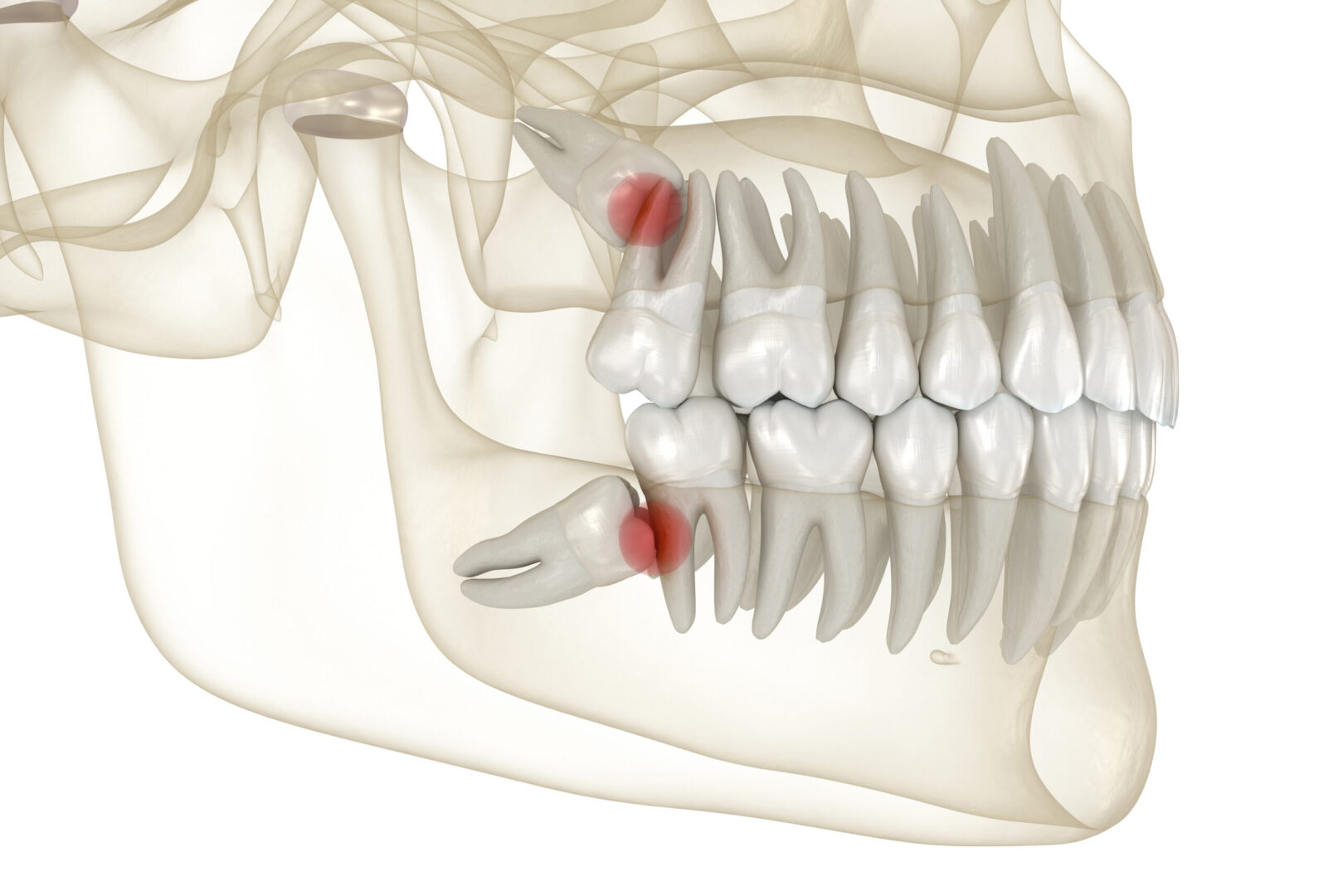Wisdom teeth are the third molars located at the back of the mouth, usually emerging between the ages of 17 and 25. Due to insufficient space or improper growth angle, wisdom teeth may not fully emerge, causing pain and other dental problems. Below are some methods to help alleviate wisdom tooth pain.

Home Remedies
Salt Water Rinse
Rinsing your mouth with warm saltwater can help cleanse the mouth, reduce bacteria, and relieve pain and inflammation. Studies suggest that saltwater rinses have anti-inflammatory effects, similar to 0.12% chlorhexidine solutions ( source ).
Peppermint and Menthol
Peppermint leaves contain menthol, which has a natural cooling effect that can temporarily relieve pain. You can dilute peppermint essential oil and apply it to the affected area, or use cooled peppermint tea as a mouthwash. Although there is no solid evidence supporting its effectiveness, peppermint is generally considered safe ( source ).
Clove Oil
Clove oil contains eugenol, an active compound with anti-inflammatory, antimicrobial, and antioxidant properties. You can apply clove oil or clove-infused water to the painful gum area ( source ).
Cold and Heat Therapy
Applying an ice pack to the face can help reduce swelling and relieve pain. Alternating between hot and cold treatments may also be effective in pain relief. Heat can promote blood flow and assist in healing.
Aloe Vera
Aloe vera is rich in antioxidants and has anti-inflammatory properties, making it useful for relieving pain and inflammation caused by wisdom teeth. Applying pure aloe vera gel can provide temporary pain relief to the affected area.
Tea Tree Oil
Tea tree oil is a potent antimicrobial agent that can help reduce bacteria on the gums. Diluting tea tree oil with a carrier oil like coconut oil and applying it to the inflamed gums can help kill bacteria ( source ).
Garlic and Ginger
Studies show that garlic effectively kills pathogens that invade the gums and alleviates pain. Crush garlic and fresh ginger into a paste and apply it to the gums.
Turmeric
Turmeric has significant anti-inflammatory effects. Applying turmeric powder to the teeth area or mixing it with salt and mustard oil to create a paste can effectively reduce pain and swelling ( source ).
Oregano Oil
Oregano oil has strong antimicrobial properties that can reduce pain, swelling, and inflammation. Carvacrol, a compound found in oregano oil, is a key ingredient contributing to its antibacterial and antioxidant effects ( source ).
Thyme Essential Oil
Thyme is used to alleviate pain and inflammation caused by wisdom teeth. While animal studies show promising results, human studies are still ongoing. Carvacrol, also found in oregano oil, is present in thyme as well.
Capsaicin
Capsaicin, the active ingredient in chili peppers, has pain-relieving and anti-inflammatory properties. A 2017 study suggests that capsaicin can be an effective treatment for certain types of neuropathic pain ( source ).
Lavender Essential Oil
Lavender oil has potential pain-relieving, antibacterial, and anti-inflammatory properties. It is also commonly used to ease anxiety before dental procedures ( source ).

Medication
Acetaminophen
Acetaminophen (e.g., Tylenol) is a common over-the-counter pain reliever. Use it according to the instructions on the label or as directed by your healthcare provider to avoid overdosing.
Aspirin
Aspirin can be used to alleviate wisdom tooth pain, but it should be used strictly according to the label instructions. Avoid taking excessive amounts, especially if you are on other medications.
Benzocaine
Benzocaine is a topical anesthetic that can relieve tooth pain. It is commonly found in dental anesthetics like Orajel and Anbesol. However, it is not recommended for children under two years old.
Ibuprofen
Ibuprofen (e.g., Advil) is an over-the-counter medication with anti-inflammatory effects that helps reduce pain and inflammation ( source ).
Other Causes of Oral Pain
Sometimes, wisdom teeth are not the only cause of oral pain. Other common dental issues include:
- Sharp pain: Often caused by cavities, cracked teeth, or needing a dental filling replacement.
- Throbbing pain: May result from infections, abscesses, or gum disease.
- Jaw pain: Could be due to temporomandibular joint disorders (TMJ).
A dentist can help identify the cause of the pain and provide appropriate treatment recommendations.
Post-Extraction Care
After having a wisdom tooth extracted, you will need some time to recover. Your dentist may recommend several methods to aid recovery and relieve pain:
- Avoid eating hard or small foods; opt for soft foods and liquids.
- Refrain from chewing on the extraction site.
- Use a manual toothbrush instead of an electric toothbrush.
- Avoid over-the-counter mouthwash and use the mouthwash prescribed by your dentist.
- Avoid using straws to prevent additional bleeding.
- Take pain relievers as prescribed. If pain becomes severe, contact your dentist promptly.
The dentist will schedule follow-up appointments and advise you on whom to contact if you experience issues.

When to Seek Professional Help
If you notice any of the following symptoms, schedule an appointment with your dentist:
- Persistent sharp pain
- Frequent headaches
- Blood in saliva
- Abscess below the gums
Not everyone needs their wisdom teeth extracted, but the American Dental Association ( source ) recommends regular X-rays and monitoring.
Conclusion
Wisdom tooth pain is common, and while you’re waiting for an extraction, home remedies and medication can help alleviate discomfort. Always consult your doctor or dentist before trying any new remedy, especially if you’re on other medications.










